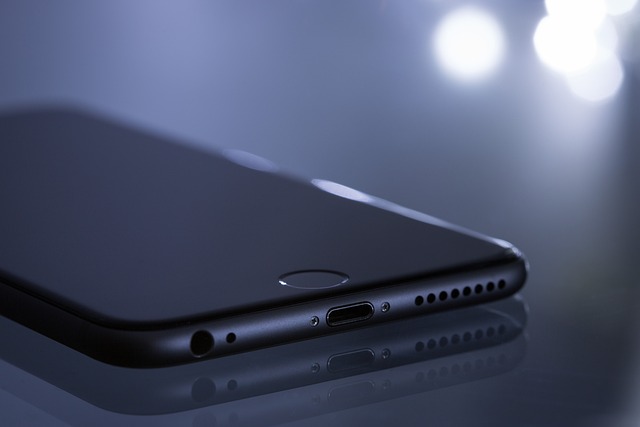Considering a battery replacement for your iPhone? Key factors include typical lifespans of lithium-ion batteries—usually two to four years—and monitoring performance indicators like battery health data and charge capacity via the Battery Health feature. Aging batteries lose capacity, potentially affecting talk time and usage. Replacing the battery can revitalize your phone's performance, especially if its capacity falls below 80%. While modern iPhones are designed for energy efficiency, a diminished battery might still suffice for light use. Evaluate your device's performance data alongside your personal usage to determine the right time for a battery replacement. This decision also impacts your iPhone's resale value; maintaining good battery health is essential for preserving its market price. When weighing whether to replace the battery yourself or seek professional help, consider that while DIY might seem cost-effective initially, professional services offer expertise, genuine parts, and often result in fewer repairs over time. Ultimately, a professional iPhone battery replacement ensures long-term performance, safeguards your warranty, and can protect the device's resale value. If you're contemplating 'replace iphone battery', it's wise to consider these aspects to ensure you make an informed choice that suits your needs and budget.
Considering an iPhone battery replacement? With technology advancing rapidly, understanding the nuances of battery health and its implications on device functionality, resale value, and overall economic viability is key. This article provides seven essential tips to evaluate whether replacing your iPhone battery is a cost-effective solution compared to upgrading. From analyzing lifespan and performance indicators to weighing DIY against professional service costs, these insights will help you make an informed decision about maintaining or upgrading your device. Replacing an iPhone battery can extend its lifespan significantly, but it’s crucial to assess all factors before proceeding. Dive into the practical aspects of battery health and its impact on your iPhone’s performance and value in the subsequent sections.
- Understanding the Lifespan and Performance Indicators of iPhone Batteries
- Assessing the Economic Viability of Replacing an iPhone Battery vs. Upgrading
- Evaluating the Impact of Battery Health on Device Functionality and Resale Value
- Comparing Costs: DIY vs. Professional iPhone Battery Replacement Services
Understanding the Lifespan and Performance Indicators of iPhone Batteries

When considering a battery replacement for your iPhone, understanding the lifespan and performance indicators is key to making an informed decision. iPhones are equipped with lithium-ion batteries that generally have a lifespan of around two to four years, depending on usage patterns, environmental conditions, and the overall care provided to the device. Regular monitoring of performance indicators such as battery health data, screen time metrics, and charge capacity can signal when your iPhone’s battery may need attention. These insights are available through the iPhone’s Battery Health feature, which assesses the maximum capacity and peak performance of the battery. As the battery ages, its ability to hold a charge diminishes, and you may notice a reduction in talk time, time between charges, or other uses. Replacing an iPhone battery when it’s at or below 80% of its original capacity can restore much of the device’s functionality, which is why understanding these factors is crucial for anyone considering ‘replace iphone battery’. It’s also worth noting that frequent replacement may not always be necessary; modern iPhones are designed with energy efficiency in mind, and a degraded battery might still perform adequately for less demanding tasks. Therefore, evaluating the necessity of a battery replacement involves both assessing performance indicators and considering your specific usage needs to ensure you’re making the best decision for your device’s longevity and your satisfaction with its performance.
Assessing the Economic Viability of Replacing an iPhone Battery vs. Upgrading

When considering whether to replace an iPhone battery or upgrade to a newer model, it’s crucial to evaluate the long-term economic viability of each option. Replacing an iPhone battery can extend the lifespan of your device significantly, allowing you to continue using your current phone without the frequent charging interruptions and performance issues associated with a depleted battery. This approach not only saves you the immediate expense but also the hassle of adapting to a new device’s interface, settings, and ecosystem. However, if your iPhone is several generations old, a battery replacement might offer a temporary solution. It’s important to factor in the age and condition of your device, as well as the availability of future software updates, which can impact both performance and battery life. On the other hand, upgrading to a newer iPhone model may initially seem costly, but it could represent a more sustainable investment over time, especially if the newer model has energy-efficient components or a larger capacity battery that ensures longer usage between charges. To make an informed decision, compare the cost of a new battery against the total expense of purchasing a new iPhone, including any trade-in value you might receive for your current device. Additionally, consider the benefits of cutting-edge features and improved performance in your daily tasks when opting for an upgrade. By weighing these factors carefully, you can determine the best course of action that aligns with both your financial plan and technological needs.
Evaluating the Impact of Battery Health on Device Functionality and Resale Value

When considering a battery replacement for your device, particularly an iPhone, it’s crucial to assess the impact of battery health on both functionality and resale value. A degraded battery can lead to reduced performance, such as shorter usage times between charges or unexpected shutdowns, which can be inconvenient and affect daily use significantly. Consequently, this diminished performance can also have a bearing on the device’s market value when it comes time to sell or trade in. Prospective buyers prioritize battery health because it’s indicative of the overall condition and longevity of the device. Therefore, replacing an iPhone battery not only enhances your current user experience but also safeguards the potential resale value. Opting for a certified battery replacement service can ensure optimal performance and provide peace of mind. It’s advisable to replace an iPhone battery before its capacity drops too low; doing so can prevent various issues and preserve the device’s worth on the second-hand market. Regular maintenance and timely battery replacements are key factors in maintaining a device’s functionality and ensuring it retains a competitive edge when reselling.
Comparing Costs: DIY vs. Professional iPhone Battery Replacement Services

When contemplating the replacement of an iPhone battery, discerning individuals face a decision between DIY solutions and professional services. Each approach offers distinct advantages and considerations. Opting for a do-it-yourself (DIY) battery swap can appear cost-effective initially; however, it necessitates an investment in specialized tools, replacement parts, and the risk of potential errors that could further damage your device. Conversely, professional iPhone battery replacement services provide expert handling and genuine components, which align with manufacturer specifications for optimal performance. While the upfront cost for professional services may seem higher than a DIY kit, it typically ensures longevity and eliminates the void of warranty that can occur with unauthorized repairs. Additionally, professional technicians bring skill and experience to the task, often completing the replacement more swiftly and efficiently compared to an inexperienced individual attempting the process at home. When evaluating the value of a battery replacement, considering the long-term reliability and potential savings from avoiding additional repairs can tip the scales in favor of professional services. Therefore, for those seeking a reliable and enduring solution, professional iPhone battery replacement services stand out as the superior choice for maintaining your device’s optimal functionality.
When considering whether to replace an iPhone battery, it’s crucial for users to weigh various factors that can influence both the device’s performance and their overall economic investment. This article has outlined seven pivotal tips to aid in evaluating the replacement value of an iPhone battery. From understanding the lifespan and performance indicators of iPhone batteries to assessing the economic viability of a battery replacement versus upgrading to a new phone, these insights empower consumers to make informed decisions. Additionally, the article compared the costs associated with DIY versus professional iPhone battery replacement services, offering a comprehensive view of the financial considerations involved. Ultimately, replacing an iPhone battery can extend the lifespan of your device and potentially enhance its resale value, making it a cost-effective solution for those looking to maintain their iPhone’s functionality without the expense of a new phone.
